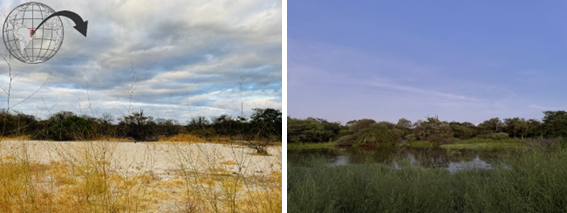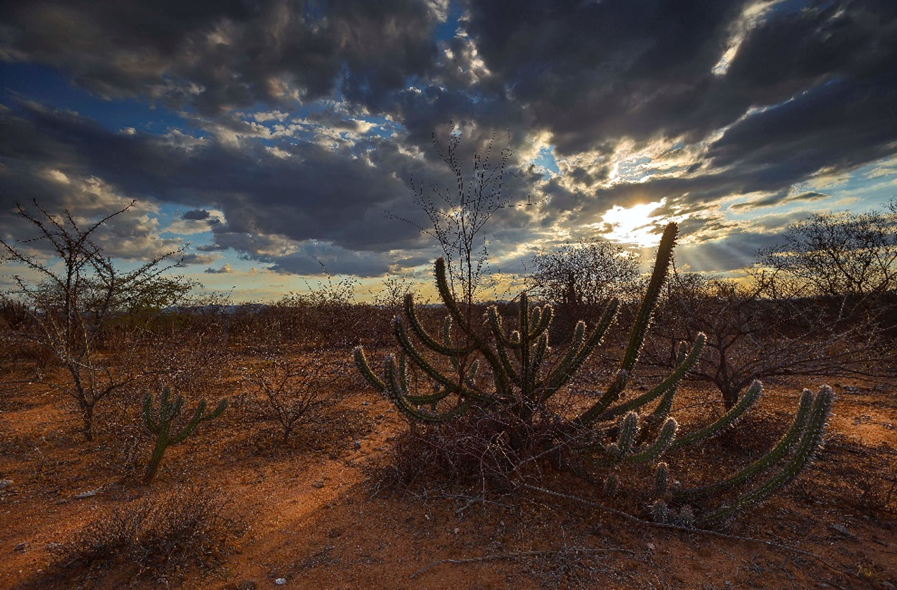Mario Moura discusses his recent article: Pervasive impacts of climate change on the woodiness and ecological generalism of dry forest plant assemblages. Find out more about the importance of long-term conservation planning for maintaining tropical dry forests.
The climate crisis is already a reality for many ecosystems on Earth. Among those ecosystems facing significant challenges due to climate change are the drylands, particularly the Caatinga in northeastern South America. Home to nearly 30 million people and with one third of its territory converted to agricultural activities, this ecoregion is projected to become hotter and drier in the future. The consequences of the increased aridity are largely unknown for most Caatinga species, which can limit the proposition of management and conservation plans effective in the long term.

Our research addresses this issue by using an unprecedented database with over 400 thousand curated occurrence records for about 3 thousand plant species, along with growth form data. We implemented an ensemble forecast approach to assess projected changes in plant assemblage richness, composition, and structure, the latter informed by the proportion of species that are either generalist or have a woody growth form within each assemblage. To provide more robust projections, our model framework included efforts to minimise issues related to uncertainty in climate projections, dispersal limitations, and model transferability.
Our findings indicate that 99% of plant assemblages in the Caatinga are projected to experience species loss by 2060, with biotic homogenisation occurring in 40% of the region. Overall, narrow-range woody species will be replaced by wide-range non-woody species, leading to a decrease in vegetation complexity and potential loss of ecosystem services. The unique topography of Caatinga poses additional challenges for highland species in tracking climatic conditions. This is particularly true for woody and rare species, exacerbating the threats they face. These biotic changes will have profound implications for ecosystem services, as species-rich assemblages are crucial for maintaining biomass productivity and carbon storage, especially in arid environments like the Caatinga.

Addressing the impacts of climate change on the Caatinga vegetation demands immediate and decisive conservation actions. The severity of these impacts is compounded by chronic disturbances and the alarming loss of habitat, with the Caatinga already experiencing the depletion of half its original cover, resulting in a highly fragmented landscape. This escalating destruction not only decreases the capacity of species to adapt but also intensifies the vulnerability of plant assemblages.
It is imperative to act rapidly in implementing conservation measures that mitigate the adverse effects of climate change, protect remaining habitats, and restore connectivity within the Caatinga drylands. By doing so, we can foster resilience and secure the long-term survival of the unique plant life within this irreplaceable region. Brazil, as the sole custodian of the Caatinga, holds the critical responsibility in conserving this unique and biodiverse ecosystem. Engaging local communities and stakeholders in conservation efforts is vital for the success of these initiatives, ensuring the active participation and support of those who rely on the Caatinga’s resources.
Read more: Moura, M.R., Nascimento, F.A.O., Paolucci, L.N., Silva, D.P., Santos, B.A. Pervasive impacts of climate change on the woodiness and ecological generalism of dry forest plant assemblages. Journal of Ecology, doi: 10.1111/1365-2745.14139.

